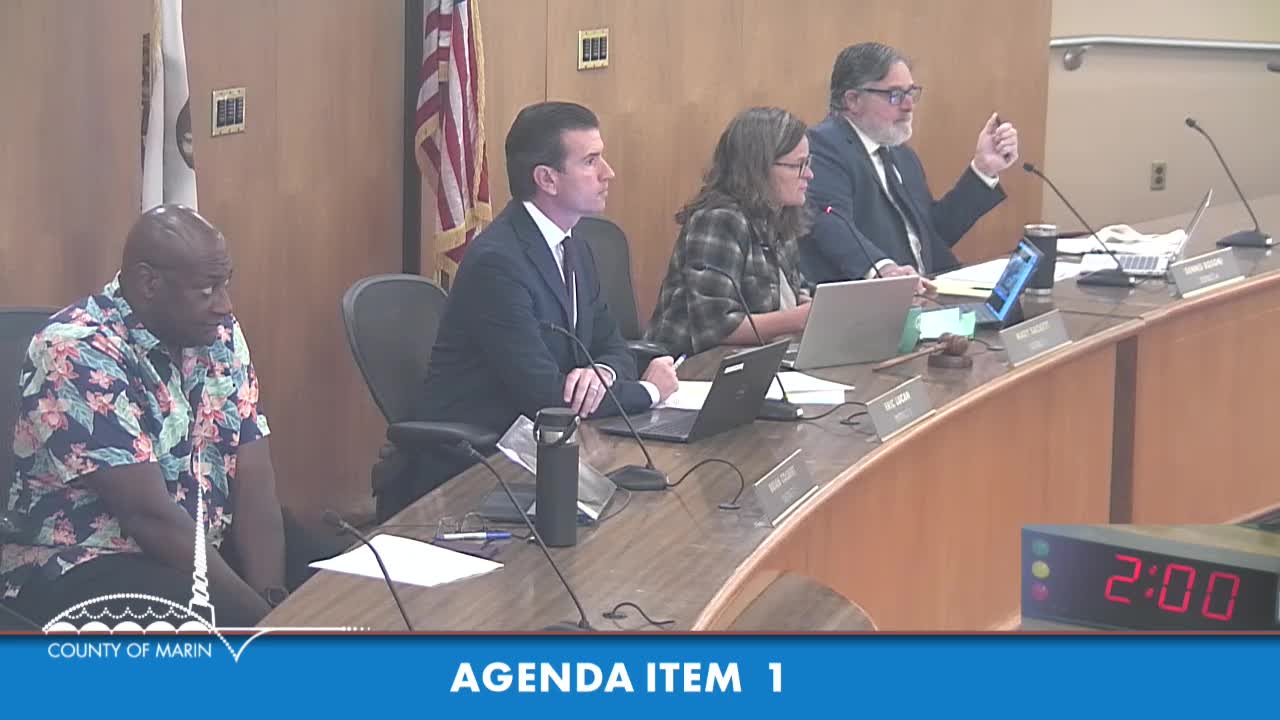Hundreds of Marin residents urge supervisors to stop sheriff’s cooperation with ICE and SCAP
Get AI-powered insights, summaries, and transcripts
Subscribe
Summary
Hundreds of Marin residents used the Board of Supervisors’ public comment period on Oct. 22 to demand county leaders press the Marin County Sheriff’s Office to stop sharing jail booking information with ICE and to end the county’s participation in the State Criminal Alien Assistance Program (SCAP).
Hundreds of residents used the Board of Supervisors’ public comment period on Oct. 22 to demand county leaders press the Marin County Sheriff’s Office to stop sharing jail booking information with U.S. Immigration and Customs Enforcement and to end the county’s participation in the State Criminal Alien Assistance Program (SCAP).
Speakers — including local residents, faith leaders and immigrant-rights advocates — said that public booking logs and SCAP reimbursements enable ICE to detain people after release. One commenter during the public comment period said, “No more cooperation with ICE in our county,” and handed the board a petition said to contain nearly 3,000 signatures asking for immediate action.
Why it matters: Petitioners said the current practices endanger immigrants, create fear in schools and workplaces, and create a financial incentive for jailing people. Several speakers cited figures they said were reported in local media and advocacy research, including totals of “over $1,200,000” received under SCAP in recent years and “over a thousand” people jailed and referenced in SCAP reimbursements; those figures were cited by speakers, not the board or county staff.
County Executive Derek Johnson responded to the speakers during the meeting, saying the county “has been leading with its values of equity, integrity,” and described existing county programs to support immigrants, including a $500,000 appropriation for immigrant legal and emergency services. Johnson told the board, “Senate Bill 54 prohibits the use of law enforcement resources to investigate, detain, and arrest individuals for immigrant enforcement purposes.” He also explained how SCAP works in the county’s view: “SCAP allows the county to offset unfunded local costs for housing individuals who were arrested and incarcerated for committing crimes in the county jail for four or more days and does not involve the use of county resources for immigration.”
Speakers asked for three specific actions: stop publishing names, charges and release dates from the jail; halt all SCAP reimbursement requests; and stop applying for future SCAP funds. Several speakers noted that other jurisdictions — including San Francisco and Santa Cruz — have changed their practices or withdrawn from SCAP and urged the board to use its budgetary influence if the sheriff’s office does not comply.
Board reaction and next steps: County Executive Johnson said the newly formed Civilian Oversight Commission has begun work and will develop bylaws, a code of conduct and a work program that could include review of SCAP participation. Johnson said the commission is expected to consider such items in the future after it completes foundational work including hiring an inspector general and adopting operating rules.
What the board did at the meeting: The board heard public comment and directed county staff to continue onboarding and supporting the Civilian Oversight Commission; no formal directive to the sheriff’s office or a board vote to change SCAP participation was recorded during the Oct. 22 session.
Context and unanswered questions: Petitioners repeatedly cited large petition totals and local reporting about SCAP reimbursements; county staff described the county’s immigrant-support programs and the legal limits set by state law. The transcript shows speakers attributing specific dollar and case counts to news reports and advocacy research; the county executive did not confirm those exact dollar totals on the public record during the meeting. Several speakers asked the board to use budget leverage over the sheriff; the meeting did not record any board action to reduce or condition funding for the sheriff’s office during this session.
Looking ahead: Advocates said they will continue outreach to the board and expect the Civilian Oversight Commission to receive the issue for review once the commission completes its initial setup work. County staff said they would report back to the board as the oversight commission’s work program is developed.
